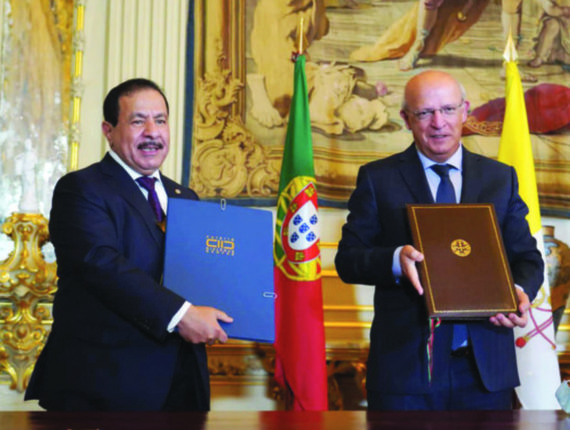Arab News
By: Rabbi Marc Schneier
February 10, 2022

Last October, the King Abdullah bin Abdulaziz International Centre for Interreligious and Intercultural Dialogue decided to relocate from Vienna to Lisbon. The reasons why bear powerful lessons for us all.
We often compare Vienna to Geneva as one of the great cities of multilateral diplomacy. The name conjures images of international leaders convening and, in measured tones, weighing the great questions of our time, from energy security to nuclear nonproliferation. The city represents tolerance and neutrality. At least that was the intent.
In recent years, however, the Austrian far-right has pushed a different vision, and Muslims have been the primary target of a new intolerance. Now comprising a central part of the governing coalition, the Freedom Party has the third-most seats in the Austrian Parliament.
Austrian history, like almost everywhere else, is cyclical and marked by periods during which politicians found it convenient to scapegoat foreigners and religious groups. In 1744, Empress Maria Theresa ordered the expulsion of Jews and enacted anti-Semitism as official policy. Centuries later, Nazi Germany annexed Austria and the Jews were again victimized. These periods in our collective memory are not the fault of today’s Austrians, but they remind us of how easily leaders can manipulate public fears to implement racist and even murderous policy.
Some of the rhetoric we see now on the right in Austria also vilifies the “other.” Irresponsible politicians know they can advance their narrative through conflict, even if that requires denigrating a center devoted to the peaceful promotion of something that used to be universally accepted: International tolerance and diversity.
KAICIID was founded in Vienna in 2012. The Vatican, Spain and Austria joined Saudi Arabia as founding partners, recognizing the importance of fostering open and honest dialogue between cultures and religions. It is an independent, international organization not beholden to any state. Its founding charter borrows from the Universal Declaration of Human Rights, reaffirming “the right to freedom of thought, conscience and religion.”
In 2008, I was privileged to play a role in shaping the multifaith design of KAICIID through initial steering committees, and I continue to serve as a member of its advisory board. The inaugural gathering in Madrid, Spain, welcomed global faith leaders. On a personal level, I was honored to address that forum on the subject of our “common faith, common fate.”
King Abdullah distilled the essence of the center when he declared: “My brothers, we must tell the world differences do not lead to conflict and confrontation.”
“If KAICIID emerges stronger and reinvigorated in new environs, so much the better for the world.”
Rabbi Marc Schneier
And yet confrontation is what KAICIID has endured from the political right, which has launched baseless attacks and allegations.
Graciously, KAICIID engaged in good-faith dialogue with policymakers in Austria to clarify its aims and rebut these growing, meritless accusations. In vain.
Media reports have indicated that KAICIID will go through a reboot in Portugal’s capital. Let us hope that it finds an environment more conducive to its critical work, which has never been more important.
What KAICIID does goes beyond the political discussions of the Middle East or Europe by addressing the root causes of religious and cultural conflicts. Leaders come in their official capacities, but leave changed as people after forging the kind of deep bonds only candid discussions can yield — discussions that touch on our most personal beliefs and our faiths.
KAICIID can and should carry on. If it emerges stronger and reinvigorated in new environs, so much the better for the world.




